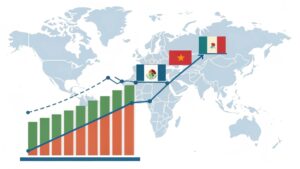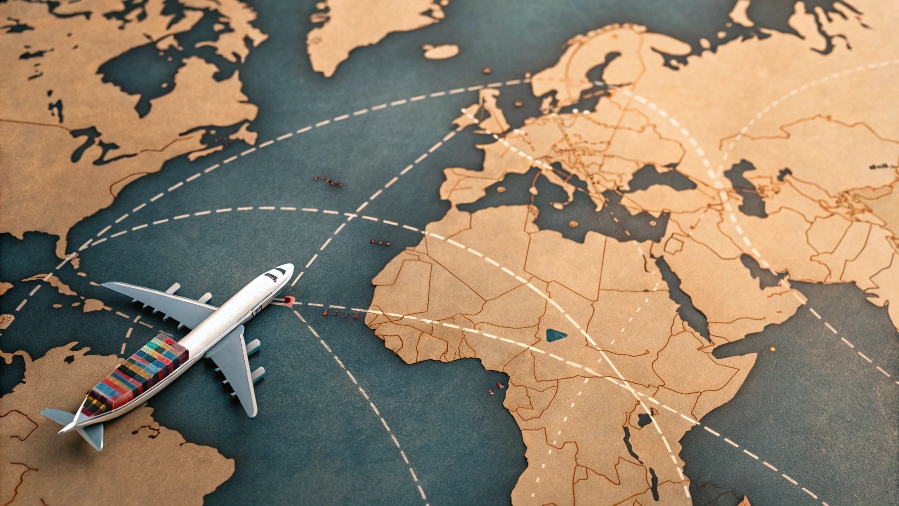Imagine your business caught in a tug-of-war between giants. It feels confusing and unfair, right?
Trade wars create big problems for small businesses. You can respond by diversifying your suppliers and customers, exploring new markets, and carefully managing your finances to handle unexpected costs.

This situation is tough, but not impossible. As someone who has built businesses in the electronics industry, I’ve navigated these challenges before. Let's break down how you can protect your business and even find new opportunities.
Tariffs feel like sudden, unexpected taxes on your products. These new costs can destroy your profit margins and make planning very difficult.
You can navigate tariffs by adjusting prices, finding new suppliers in different countries, or focusing more on your home market. Each strategy has its own benefits and drawbacks.

In my years managing an audio products factory, I saw tariffs change the game overnight. It forces you to think fast. For an engineer like Jacky, who needs specific electronic components, a sudden tariff on goods from China can halt a project. To deal with this, you need a clear plan. Here are the main options I've seen work:
| Strategy | How It Works | The Downside |
|---|---|---|
| Adjust Your Prices | You increase your product's price to cover the tariff cost. This protects your profit. | Your product becomes more expensive, and you might lose customers to competitors. |
| Find New Suppliers | You look for suppliers in countries not affected by the tariffs, like Vietnam or Mexico. | This takes time and effort. You have to check the new supplier's quality and reliability. |
| Talk to Your Supplier | You can try to negotiate with your current supplier to see if they can share some of the tariff cost. | They might say no, especially if they have many other customers. It depends on your relationship. |
| Focus on Local | You can shift your sales efforts to your domestic market, where international tariffs don't apply. | This can limit your growth and might not be possible for all types of businesses. |
Making a choice depends on your specific situation. The key is to act quickly and not wait for the problem to solve itself.
How Do Trade Wars Affect International Business Owners?
Trade wars create problems that go far beyond just tariffs. The entire landscape of international business becomes unstable and unpredictable.
For international business owners, trade wars disrupt supply chains, make demand uncertain, and create currency risks. You have to become more flexible and stay informed about global changes.

When I was running my electronics trading company, we relied on smooth international logistics. A trade war throws a wrench in everything. It’s not just one problem; it's a chain reaction. For business owners, especially in a technical field like electronics, the effects are deeply felt.
Here are the key impacts:
- Supply Chain Chaos1 Suddenly, your shipments can be delayed for weeks. Ports get jammed, and paperwork becomes a nightmare. For someone like Jacky designing circuit boards, a delayed component shipment can push back an entire product launch.
- Unpredictable Demand2: When tariffs make your products more expensive in another country, customers there might stop buying. Your sales forecasts become useless, making it hard to manage inventory.
- Payment and Currency Risks3: Trade tensions can make currencies go up and down. An order that was profitable one day can become a loss the next if the exchange rate changes against you. It also becomes crucial to use secure payment methods, as the risk of non-payment can increase.
- Changing Rules: Governments can change trade rules with little warning. You have to constantly watch the news and adapt, which takes time away from running your actual business.
I saw some of my clients suffer because they were too slow to react. The ones who survived were those who had a Plan B ready.
Who Benefited From the US-China Trade War?
While many businesses struggle during a trade war, some can find an advantage. It’s important to understand where the opportunities might be.
Countries not directly involved in the conflict, like Vietnam, Mexico, and Taiwan, often benefit. Also, companies that produce and sell goods locally within a large market can gain an edge.

It seems strange to talk about "winners" in a trade war, but business always flows somewhere. From my position in the electronics industry, I had a clear view of these shifts. As companies scrambled to move manufacturing out of China to avoid US tariffs, a few key groups benefited:
- Alternative Manufacturing Countries4: Nations like Vietnam saw a huge boom. I personally saw factories there get flooded with orders for everything from headphones to circuit boards. Mexico also benefited due to its proximity to the US. These countries became the new go-to spots.
- Domestic Producers5: A company in the US that was already making its products locally suddenly became more competitive. Their prices didn't go up due to tariffs, so they looked like a better deal compared to imported goods.
- Logistics and Consulting Experts6: With all the new complexity, businesses needed help. Logistics companies that could figure out new shipping routes and consultants who understood tariff laws became very valuable.
My core advice, based on this, is to always follow national policies closely. Start building relationships with customers in countries that are not part of the trade dispute. Diversifying your customer base is one of the best forms of insurance.
Conclusion
Trade wars are a major challenge for small businesses. However, by staying informed, being flexible, and thinking strategically, you can navigate these problems and find new ways to grow.
-
Understanding the effects of supply chain chaos can help businesses strategize and mitigate risks effectively. ↩
-
Exploring this topic can provide insights into better inventory management strategies amidst demand fluctuations. ↩
-
This resource can help businesses navigate the complexities of currency risks and secure their transactions. ↩
-
Explore how countries like Vietnam and Mexico are reshaping global manufacturing and attracting businesses. ↩
-
Learn how US domestic producers are thriving amidst global competition and tariffs. ↩
-
Discover the vital role of logistics and consulting experts in navigating modern business challenges. ↩

